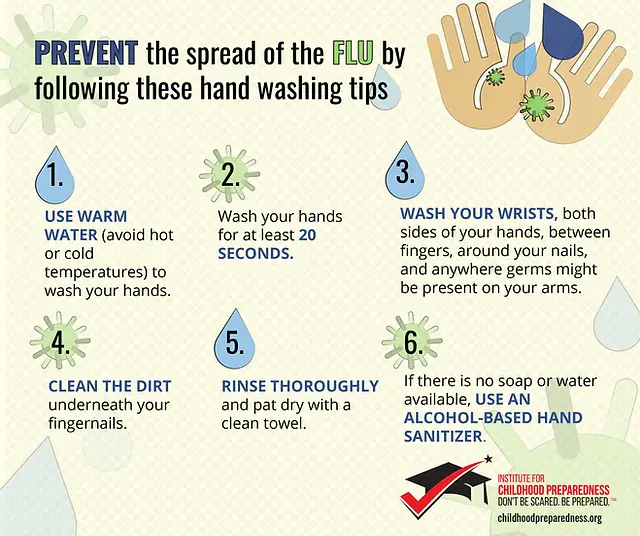If the COVID-19 epidemic has taught us anything, it is that hand cleanliness is crucial for maintaining good public health. One of the simplest and least expensive things you can take to stop the spread of disease is washing your hands. When you are unable to wash your hands, using hand sanitizer is a smart alternative. Hand washing is vital even when there is no pandemic. Wintertime is considerably worse.
WHY HANDWASHING IN WINTER IS SO IMPORTANT
The influenza season is winter. There are several causes for this. First, cold air tends to facilitate the spread of viruses like the flu and colds. The second is that chilly weather tends to keep people inside. We all know that airborne viral transmission is facilitated by close indoor contact. It also entails touching shared objects, which is a common way for people to spread colds and flu. Maintaining good hand hygiene can help stop or slow the spread of certain diseases.
Every day of the year, wash your hands. However, during the winter months, hand cleaning becomes even more crucial. This is primarily because cold and flu season is a high-risk period for the spread of viruses. One of the simplest and most reliable strategies to prevent these diseases is to wash your hands frequently. Here are some pointers to assist you with hand washing.
A TIMELINE FOR HANDWASHING
- You would wash your hands every hour on the hour in an ideal world.
- You should educate yourself with the ideal times to wash your hands because this might not be practical.
- Make it a routine to wash your hands before, during, and after preparing and eating meals.
- Additionally, wash your hands after using the bathroom.
- Wash your hands as well if you are caring for a baby, an elderly person, or a sick person.
- Additionally, if you handle pet food or come in contact with trash, wash your hands immediately.
GUIDE ON WASHING HANDS
- After wetting your hands with fresh, running water, shut off the faucet.
- Use soap and wash thoroughly for 20 seconds (or longer if the filth is deeply embedded).
- All of the surfaces of your hands, wrists, and fingers should be quickly rubbed together.
- Remember to check the backs of your hands, wrists, the spaces in between your fingers, and the area under your fingernails.
- If you can, take off your jewelry before washing your hands, or make sure to relocate it so you can wash underneath it because bacteria might live there.
- Make sure all soap residue is gone by giving the area a thorough rinse under running water.
- Use a fresh towel to dry your hands or let them air dry.
HOW TO CHOOSE HANDWASH
- Germ prevention qualities: When it comes to handwashing, the most fundamental request is that the cleanser aid get rid of all the dirt and germs on our hands. Infections typically spread when contaminated hands come in contact with the face, eyes, nose, and mouth, providing a simple pathway for germs to enter the body.
- Mood-lifting Fragrance: Our mood is significantly influenced by scent. A handwash's fruity, floral, and oil-based ingredients can add these aroma notes and support mood enhancement and positivity.
- Nourishing ingredients: A quality hand wash not only kills germs and removes dirt, but also makes our hands feel soft and moisturized. The right recipe and ingredient selection can aid in moisturizing and softening skin. Therefore, choose a handwash that has moisturizing qualities to keep your hands clean as well as to make them soft and supple.
LOOK AFTER YOUR HANDS
Hygiene as well as nourishment and hydration of hands are important too. Being your best defense against illness, your skin needs to be taken care of generally.After completely drying your hands, you can take care of your hands by doing the following.
- Apply an absorbent hand lotion with a water basis three to four times daily, or more often if your hands are in water all the time.
- To protect your hands when cleaning dishes, wear gloves.
- To avoid embedded soil buildup or scratches while gardening, wear gloves.
- If an inflammation of the skin worsens or persists, see a doctor.
